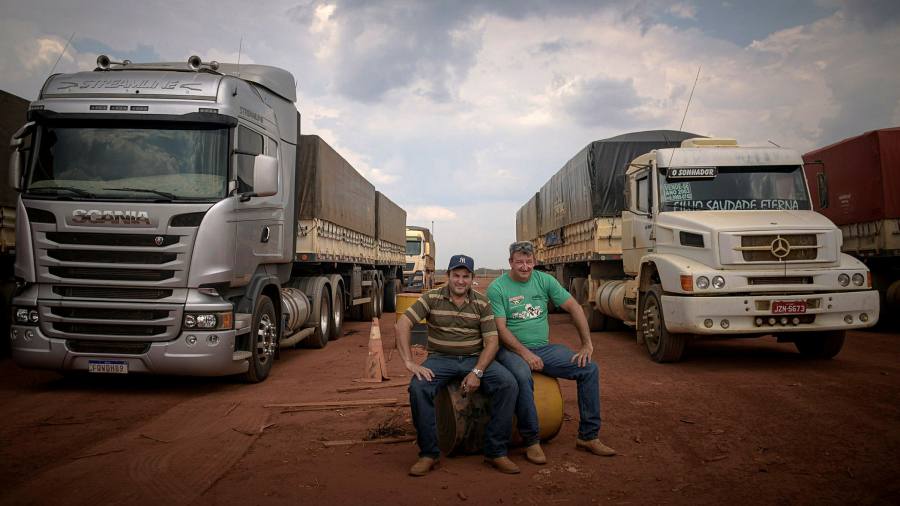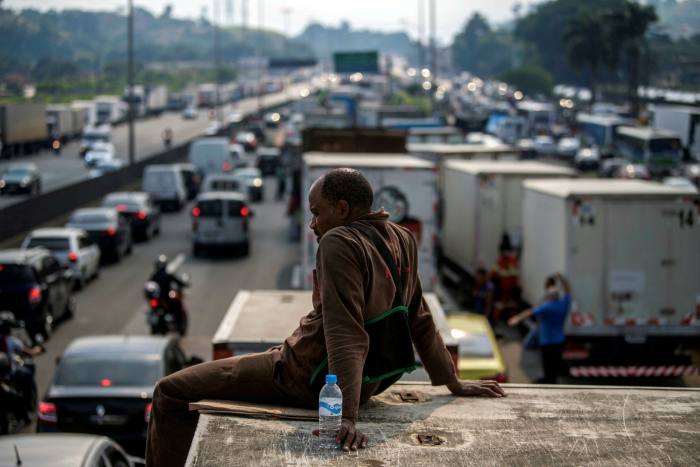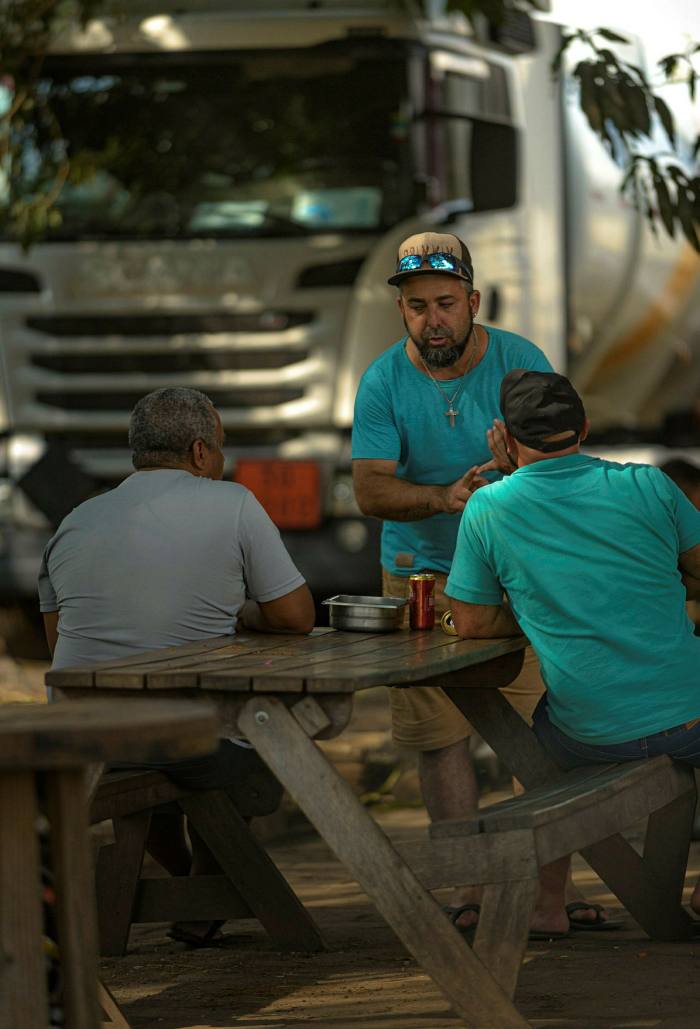[ad_1]
After 40 years driving his truck the length and breath of Brazil, Edilmo de Sousa Soares has many things to complain about, including the price of fuel, the conditions of the roads and the corruption that has long plagued Latin America’s largest nation.
But on the subject of the country’s president, Jair Bolsonaro, the 62-year-old from the north-eastern state of Bahia has not a bad word to say: “He is the best president we have had. The only reason he has not done more is because everyone is against him.â€
Keeping voters like Soares sweet prompted Bolsonaro to oust the head of state-controlled oil major Petrobras last month after the executive refused to cap the price of fuel.
The move sent Brazilian markets into a tailspin as foreign investors rushed for the door, pulling billions of dollars out of the country amid fears that it was returning to the days of government intervention in its big state-controlled companies.
But it earned the populist president kudos with the tens of thousands of truckers, who complain that the cost of fuel combined with falling freight prices has made their livelihoods unsustainable.
Their complaints carry weight: Brazil has long been dependent on truckers to keep its economy moving. More than 60 per cent of cargo in the continent-sized nation is transported by truck, compared with 32 per cent in the US and 43 per cent in Canada. Take away iron ore — usually moved by rail — and the figure “increases considerably,†according to the National Transport Confederation.
When the truckers last staged a nationwide strike in 2018, the Brazilian economy ground to a halt as food and fuel supplies ran short and offices were forced to shut. The 10-day strike shaved as much as 1.2 percentage points off growth that year, according to Ana Paula Vescovi, a former executive secretary at the ministry of finance.
Before Bolsonaro dismissed the Petrobras chief, the truckers had once again been considering action.
“Today is worse than 2018 in terms of prices, but at least we have a dialogue with the government. In 2018 we had nothing,†said Wallace Landim, president of the Brazilian Association of Motor Vehicle Drivers, an industry lobby group.
He said the strike showed that truckers were a priority for the public “and with the pandemic, we didn’t let the public down. Today the transport sector is working on shipping vaccines. We are on the front lines along with the nurses.â€
Brazil’s reliance on truck drivers goes back to the mid-20th century when the country adopted wholesale the road and car culture of the US. Road projects have also provided useful cover for corruption, with construction companies massively inflating their costs and giving kick backs to the state and local politicians who granted approval — all at the expense of the taxpayer.
“Brazil once had more railways, but wrong choices were made. More recently, cabotage has been restricted by the force of civil servants and politicians that distribute jobs in the public companies,†said Jorge Luiz de Biazzi, a professor of economics at the University of São Paulo.
Today much of Brazil’s road network is in poor condition, increasing the cost of transportation and damping investor appetite to purchase concessions to operate the roads.
The problems are particularly acute in interior states such as Mato Grosso and Mato Grosso do Sul, which have emerged as agricultural powerhouses. Agribusiness is an increasingly dominant driver of the Brazilian economy, but it remains hamstrung by the costs of moving product thousands of kilometres along bad roads to the coastal ports. The use of the articulated vehicles also carries a high environmental cost.
Truckers complain they are squeezed between the falling wages offered by the transport companies that contract them and the rising costs of diesel, which at the pump on Wednesday was R$4.8 a litre ($0.84) — up from more than R$3.5 in November.
“We work 12 or 13 hours a day. When I started in 2010, the price of freight was much higher, but the transport people are now taking a slice of the cake. And the price of diesel is absurd,†said Odinei Ferre, a trucker from the south of Brazil, who ships soyabeans more than 2,000km from Mato Grosso to the coast.
Cláudio Frischtak, a logistics expert at consultancy Inter B, said: “The truckers have a very difficult life. There are many things that have to be done to improve their quality of life, including improving the roads and regulating freight prices.â€
Since his inauguration, Bolsonaro has attempted to address the first issue, focusing heavily on improving the road network in Brazil’s vast interior. Last year, the administration succeeded in asphalting the final stretch of the BR-163 highway — which bisects Brazil from north to south — opening up a new route to move soyabeans out of states such as Mato Grosso.
“I am not a fan of President Bolsonaro, but I think [infrastructure] minister TarcÃsio Gomes de Freitas is doing a good job trying to solve some of these problems,†said de Biazzi.
He added that the minister was pursuing new railway projects that would criss-cross the nation, but that “politics makes everything difficultâ€.
The Bolsonaro administration has also put a temporary freeze on some fuel taxes and considered a special stipend for truckers, although the plan appears to have been suspended after the upheaval at Petrobras.
“The president spread this idea of a stipend, but are we going to live on a stipend? We want a fair price and we want to work,†said Landim, the president of the drivers’ lobbying group.
“But the situation is worse now than 2018. I would say to the president: Listen to Brazil. Realise that we are Brazil.â€
Additional reporting by Carolina Pulice
[ad_2]
Source link








